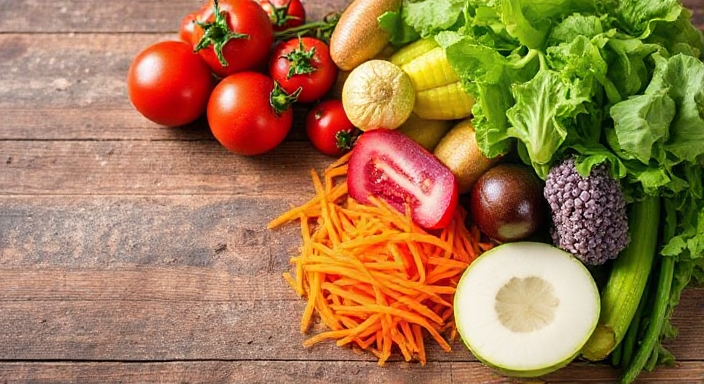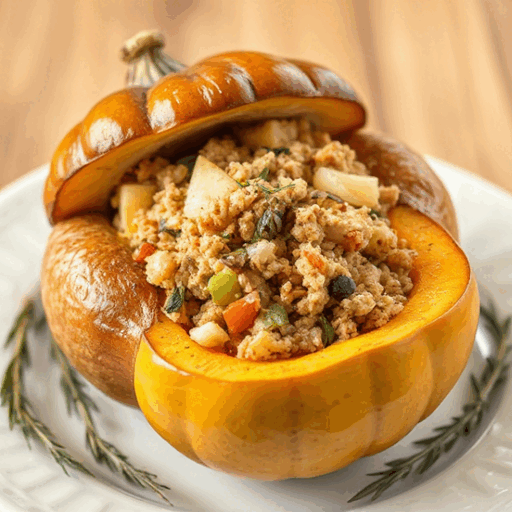What are the Collagen-rich foods?
Collagen is a body-produced fibrillar protein that gives elasticity and…

Inflammation is your body’s natural defense mechanism, a way to heal from injury or fight infection. In short bursts, it’s a good thing—a sign that your body is protecting itself. But when inflammation becomes chronic, it can wreak havoc on your health, leading to joint pain, fatigue, digestive issues, and even chronic diseases like heart disease, arthritis, and autoimmune conditions. The good news? You can actively calm inflammation through the foods you eat every day.
Food is one of the most powerful tools we have to nourish our bodies, reduce inflammation, and support healing. By incorporating anti-inflammatory foods into your meals, you give your body the nutrients and compounds it needs to fight oxidative stress, repair tissues, and thrive.
Here are five powerhouse foods that can help reduce inflammation naturally, along with the science behind how they work and practical ways to add them to your routine.
Turmeric: The Golden Spice That Heals
Turmeric has been used for centuries in Ayurvedic and traditional medicine, and modern science continues to uncover its powerful anti-inflammatory properties. At the heart of turmeric’s healing magic is curcumin, its active compound. Curcumin is a potent antioxidant that works to combat inflammation at the cellular level by blocking inflammatory pathways and reducing the activity of pro-inflammatory enzymes.
Research has shown that curcumin can be as effective as some anti-inflammatory medications—without the side effects. It is particularly beneficial for reducing symptoms of inflammatory conditions like arthritis, muscle soreness, and even inflammatory bowel disease.
Turmeric also helps combat oxidative stress, which can cause cellular damage over time. By neutralizing free radicals, curcumin supports long-term health and reduces the risk of chronic diseases.
How to Enjoy Turmeric Daily:
Consistency is key with turmeric. By adding small amounts regularly, you allow its anti-inflammatory effects to build up in your body.
Salmon: Omega-3s to Calm Inflammation
Salmon is one of the best foods you can eat to fight inflammation. It is loaded with omega-3 fatty acids—specifically EPA (eicosapentaenoic acid) and DHA (docosahexaenoic acid)—which are essential for reducing inflammation throughout the body.
Omega-3s work by inhibiting the production of inflammatory molecules called eicosanoids and cytokines. They also reduce the activity of pro-inflammatory enzymes, helping to soothe inflammation in the joints, muscles, and tissues. For those who struggle with arthritis, muscle soreness, or other inflammatory conditions, incorporating salmon into your diet can offer significant relief.
Additionally, omega-3 fatty acids support brain health, cardiovascular health, and even mood regulation. Chronic inflammation is often linked to mental fog, depression, and anxiety, and salmon’s nutrient profile helps address both body and mind.
How to Enjoy Salmon Daily:
Aim to enjoy salmon two to three times a week to reap its full anti-inflammatory benefits. If you’re not a fan of fish, consider adding omega-3-rich alternatives like flaxseeds, chia seeds, or a high-quality fish oil supplement.
Walnuts: Anti-Inflammatory Polyphenols and Healthy Fats
Walnuts are more than just a delicious snack; they are a nutritional powerhouse when it comes to fighting inflammation. These brain-shaped nuts are packed with omega-3 fatty acids, antioxidants, and polyphenols—all of which work together to reduce inflammation and support overall health.
The polyphenols in walnuts help neutralize free radicals, which are unstable molecules that can cause oxidative damage and inflammation. Combined with their healthy monounsaturated and polyunsaturated fats, walnuts help lower inflammation markers, improve heart health, and support brain function.
Walnuts are particularly beneficial for individuals with inflammatory conditions, like arthritis or cardiovascular issues. They’re also a great source of plant-based omega-3s, making them an excellent choice for those who don’t consume fish.
How to Enjoy Walnuts Daily:
Just a small handful of walnuts a day can make a noticeable difference in reducing inflammation and supporting long-term health.
Beets: Nature’s Anti-Inflammatory Powerhouse
Beets are a vibrant root vegetable that deserves a place on your plate, especially if you’re looking to calm inflammation. Beets are rich in betalains, natural plant compounds that give them their deep red color and powerful anti-inflammatory properties.
Betalains work to reduce inflammation by inhibiting inflammatory pathways in the body. Additionally, beets are loaded with nitrates, which convert into nitric oxide in the body—a compound that helps relax blood vessels, improve circulation, and reduce blood pressure. Improved blood flow means better nutrient delivery and oxygenation throughout the body, which supports healing and recovery.
Beets also contain antioxidants, vitamins, and minerals that promote detoxification, protect cells, and reduce oxidative stress, all while boosting energy levels.
How to Enjoy Beets Daily:
Incorporating beets into your meals regularly can help reduce inflammation while supporting overall vitality.
Broccoli: Sulforaphane to Reduce Inflammation Markers
Broccoli, part of the cruciferous vegetable family, is one of the most powerful anti-inflammatory foods available. Its secret weapon? Sulforaphane, a natural compound that reduces inflammation by lowering levels of pro-inflammatory markers in the body.
Sulforaphane works by activating pathways that help your body fight oxidative stress and inflammation at the cellular level. This effect makes broccoli a valuable food for reducing the risk of chronic diseases like heart disease, diabetes, and even certain cancers.
Broccoli is also rich in vitamins C and K, which further support your body’s ability to reduce inflammation and strengthen immunity.
How to Enjoy Broccoli Daily:
Eating broccoli regularly—even just one serving a day—can significantly lower inflammation and improve your overall health.
The Power of Food for Healing
Food is medicine, and incorporating these five anti-inflammatory foods into your daily routine can make a profound difference in how you feel. Turmeric, salmon, walnuts, beets, and broccoli are all nutrient-dense, healing foods that work to reduce inflammation, protect your cells, and promote overall vitality.
The best part? You don’t need drastic changes to experience these benefits. By adding even small portions of these foods to your meals each day, you can start calming inflammation, restoring balance, and taking intentional steps toward better health.
Collagen is a body-produced fibrillar protein that gives elasticity and…
copyright © 2025 Anti-Inflammatory Approach. All rights reserved. Unauthorized reproduction, distribution, or use of any content, including text, images, recipes, or other materials on this website, is strictly prohibited without prior written permission. This website’s content is provided for informational purposes only and does not constitute medical or professional advice.


This $1 anti-inflammatory cookbook is packed with simple, tasty recipes to reduce inflammation and improve energy. Don’t miss out—get it now on Amazon!